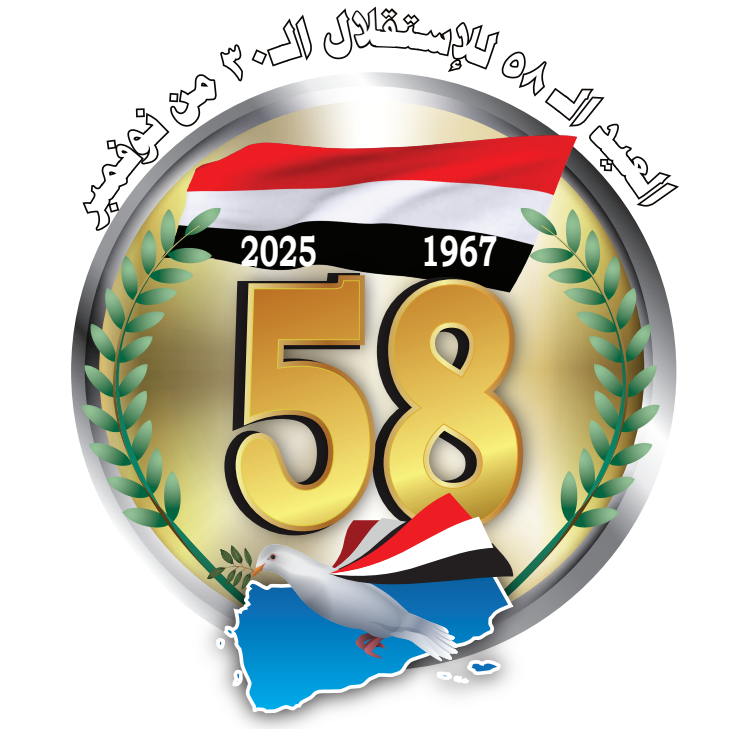
A government source confirms full support for Saudi-Emirati mediation to end escalation and for withdrawal of the Transitional Forces from Hadramout, al-Mahrah
An authorized official in the Yemeni government stated that His Excellency President Dr. Rashad al-Alimi, Chairman of the Presidential Leadership Council (PLC)—Commander in- Chief-- was briefed along with a number of Council members and members of the National Defense Council on the situation in Hadramaut governorate, including the hostile military operations of the Transitional Council in recent hours, and the grave violations against innocent civilians in the governorate.

Massive 7.0 Magnitude Earthquake Strikes Alaska, USA
A powerful 7.0 magnitude earthquake struck Alaska, USA, yesterday evening, according to the United States Geological Survey (USGS).

Korean autos exports rise 13.7 percent in November
South Korea's autos exports rose by 13.7 percent year-on-year in November, thanks to a notable increase in shipments of eco-friendly and hybrid models.

Barcelona Consolidates Lead in Spanish La Liga with Win Over Villarreal
Barcelona strengthened its position at the top of the Spanish La Liga table after defeating host Villarreal 2-0 in the 17th round of the competition.
Last Update: ،
2025/12/26
Time
09:44:51
Latest News:
 UK REAFFIRMS COMMITMENT TO YEMEN'S UNITY AND SOVEREIGNTY
UK REAFFIRMS COMMITMENT TO YEMEN'S UNITY AND SOVEREIGNTY
 Leadership Council Chairman Presides Over Meeting of National Defense Council
Leadership Council Chairman Presides Over Meeting of National Defense Council
 Arab Parliament Reaffirms Support for Yemen's Unity and Government
Arab Parliament Reaffirms Support for Yemen's Unity and Government
 Yemen Ambassador, Chinese Official Discuss Yemen Developments
Yemen Ambassador, Chinese Official Discuss Yemen Developments
 Jordan welcomes Saudi Arabia's statement on recent developments in Hadramawt and Al-Mahra
Jordan welcomes Saudi Arabia's statement on recent developments in Hadramawt and Al-Mahra
Latest News:
 UK REAFFIRMS COMMITMENT TO YEMEN'S UNITY AND SOVEREIGNTY
UK REAFFIRMS COMMITMENT TO YEMEN'S UNITY AND SOVEREIGNTY
 Leadership Council Chairman Presides Over Meeting of National Defense Council
Leadership Council Chairman Presides Over Meeting of National Defense Council
 Arab Parliament Reaffirms Support for Yemen's Unity and Government
Arab Parliament Reaffirms Support for Yemen's Unity and Government
 Yemen Ambassador, Chinese Official Discuss Yemen Developments
Yemen Ambassador, Chinese Official Discuss Yemen Developments
 Jordan welcomes Saudi Arabia's statement on recent developments in Hadramawt and Al-Mahra
Jordan welcomes Saudi Arabia's statement on recent developments in Hadramawt and Al-Mahra
Government: Peace in Yemen cannot be achieved without genuine partner willing to abandon war
[11/12/2024 08:29]
NEW YORK - SABA
The Government of Yemen has said: "Peace in Yemen cannot be achieved without a genuine partner who abandons the option of war and believes in the rights and equal citizenship of all Yemeni people, renouncing violence as a means to impose political agendas and prioritizing the interests of the Yemeni people above all else."
In its statement before the Security Council during the open session on the situation in the Middle East (Yemen), delivered by Yemen's Permanent Representative to the United Nations Ambassador Abdullah al-Saadi, it added: "What is missing in the Yemeni scene today is peace in all its dimensions due to the refusal of the Iranian-backed Houthi terrorist militias to engage with all regional and international efforts aimed at ending the Yemeni crisis, their unwillingness for peace, and their lack of serious engagement with these efforts, continuing their obstinacy and military escalation on various fronts, and their systematic economic war against the Yemeni people."
"This occurs amid a fragile truce that these militias have not adhered to, necessitating this council and the international community to reconsider how they deal with the behaviors of these militias and their security-destabilizing approach in Yemen and the region."
Al-Saadi reaffirmed the Yemeni government's commitment to a comprehensive, just, and sustainable peace process based on agreed political solution references, which include the Gulf Initiative and its executive mechanism, the outcomes of the Comprehensive National Dialogue Conference, and relevant Security Council resolutions, particularly Resolution 2216.
He reiterated the government's support for the efforts of the UN Secretary-General's special envoy to Yemen, Hans Grundberg, and all initiatives and proposals aimed at resolving the crisis in Yemen, achieving the aspirations and hopes of the Yemeni people.
He highly valued the efforts made by the brothers in the Kingdom of Saudi Arabia and the Sultanate of Oman to revive the political process, leading to a political solution and ending the conflict, restoring security and stability in Yemen.
He pointed out that the actions of the Houthi terrorist militias, escalating in the Red Sea and the Bab al-Mandab Strait, no longer represent just a threat to Yemen and its stability, but pose a serious threat to regional and international security, maritime navigation, and international trade, and are an evasion of the obligations of peace.
He noted that this threat is not new, nor has it arisen from nothing; rather, it has resulted from the international community ignoring the Yemeni government's warnings for years about the danger posed by the Houthis to the Stockholm Agreement, including the Hodeidah Agreement, their continued control over the city and its ports, and their use of it as a platform to target international shipping routes and commercial vessels, launching missiles, drones, and naval mines, and smuggling weapons in violation of the sanctions measures established under Security Council Resolution 2140 and subsequent relevant resolutions.
This reaffirms the militias' efforts, backed by the Iranian regime, to undermine security and stability in the region, threaten international shipping lines, disrupt global economic lifelines, and undermine de-escalation initiatives and efforts to achieve peaceful solutions to the Yemeni crisis, destroying the resources of the Yemeni people, prolonging the war, exacerbating the humanitarian crisis, and hindering any progress in the UN-led peace process, said Yemen's Permanent Representative to the UN Abdullah al-Saadi.
He stated, "Iran must withdraw its hand from Yemen, respect its sovereignty and identity, and empower its people to build their state and shape the better future they all deserve. The time has come for this."
He emphasized that the continued supply of the Iranian regime to the Houthi terrorist militias with experts, training, and weapons, including ballistic missiles and drones, represents a blatant violation of relevant Security Council resolutions, especially Resolutions 2216 and 2140, and a disregard for the efforts of the international community and this esteemed council to maintain regional and international peace and security.
Therefore, the efforts of this council to achieve this goal and address the Yemeni crisis must be translated into the implementation of its resolutions and the adoption of a decisive stance to deter and hold accountable violators of these resolutions, he emphasized.
Al-Saadi once again called on the international community to provide support in the economic and developmental fields and to build and enhance Yemen's security capabilities, including in the area of Yemeni coast guard to face the security challenges threatening international navigation in the Red Sea, Bab al-Mandab Strait, and the Gulf of Aden.
He commended the United Kingdom's efforts and its announcement of a new package of support for the Yemeni coast guard forces as part of coordinated efforts to combat arms smuggling, piracy, terrorism, and organized crime. He affirmed that supporting the Yemeni government in facing developmental and security challenges serves everyone's interests and represents an investment in the stability of the region and the world.
He also underscored the importance of activating the role of the UN Verification and Inspection Mechanism.
He addressed the economic challenges facing the government due to its inability to resume oil exports for over two years as a result of attacks by the terrorist Houthi militias targeting oil facilities, depriving the Yemeni people of vital resources and impacting the state’s general budget.
This has hindered the government's ability to provide basic services to citizens, pay salaries, and has deprived the national economy of the influx of hard currency, increasing pressure on the national currency. He called on the international community to support the government and assist it in finding possible means and ways to resume oil exports, which are crucial for meeting its essential obligations.
Ambassador al-Saadi noted that despite the economic challenges, the government continues to implement a series of measures aimed at alleviating economic and humanitarian suffering, halting economic deterioration, and stabilizing public services.
This includes developing plans and setting priorities to find sustainable solutions at both developmental and service levels, implementing a series of economic, financial, and administrative reforms, and enhancing transparency, accountability, and anti-corruption as a hallmark of the current phase.
He expressed full confidence in the support of the international community and Yemen’s development partners from brotherly and friendly countries, as well as international donor organizations, for the government's plans and programs in these exceptional circumstances to achieve stability and economic recovery, enhance the capabilities of government institutions, and integrate developmental priorities and needs into all humanitarian interventions.
He praised the support provided by the brothers in Saudi Arabia and the United Arab Emirates for their interventions in the developmental and humanitarian fields to mitigate the catastrophic humanitarian and economic impacts.
He stated: "Yesterday, people around the world celebrated International Human Rights Day while the Houthi militias continue to commit crimes of abduction, repression, enforced disappearance, and arbitrary detention against our people in the areas under their control, targeting populated areas which have resulted in the deaths of dozens of civilians, including women and children.
The latest of these crimes was the horrific act in the Maqbana district of Taiz governorate, where the Houthi militias targeted a popular market with an Iranian-made drone, resulting in six deaths and eight injuries, including children."
He affirmed that this crime is not an exception but a continuous approach since the Houthis' coup against the state, occurring amid ongoing military escalation by these militias in several areas aimed at terrorizing and displacing the population, challenging de-escalation efforts, and undermining the chances for a peaceful resolution to the crisis.
He added, "We have long called for strong and serious positions from the United Nations, especially from this esteemed council and the Office of the United Nations High Commissioner for Human Rights, regarding the ongoing violations and crimes committed by the Houthi militias, which have not only affected the Yemeni people but have also extended to the abduction and enforced disappearance of dozens of employees of UN agencies and international and local organizations operating in Yemen for more than six months.
Unfortunately, we are witnessing a continued laxity from the international community and the issuance of soft language that does not match the scale of these crimes and violations, which has encouraged these militias to persist in practices that represent a violation of international humanitarian law, human rights law, and national legislation."
Ambassador al-Saadi renewed the Yemeni government's call to the United Nations and the Security Council to intensify efforts for the immediate and unconditional release of abductees, humanitarian workers, and all detainees and forcibly disappeared individuals, ending their suffering and that of their families, according to the principle of "all for all."
He pointed out that in light of the ongoing targeting of humanitarian work by the Houthi militias and their obstruction of its activities, the Yemeni government reiterates its demand that the United Nations and all international organizations operating in Yemen move their main offices to the temporary capital, Aden, to ensure the safety and security of their employees, and to provide a safe and suitable environment for these agencies to operate and deliver humanitarian services to all Yemenis in all regions without discrimination or obstacles.
He expressed the Yemeni government’s aspiration to initiate a donor conference to mobilize funding for the humanitarian response plan in Yemen for 2025, calling on donor partners from brotherly and friendly countries and international organizations to provide generous support for this plan in a way that covers the funding gap, meets the existing humanitarian needs, and avoids halting life-saving assistance.
He urged the international community to keep Yemen at the top of its priority list amid multiple humanitarian crises in various countries.
Key words:
Unfortunately - implementation - government’s - accountability - Representative - discrimination - administrative - deterioration - necessitating - unwillingness - A government source confirms full support for Saudi-Emirati mediation to end escalation and for withdrawal of the Transitional Forces from Hadramout, al-Mahrah
A government source confirms full support for Saudi-Emirati mediation to end escalation and for withdrawal of the Transitional Forces from Hadramout, al-Mahrah UK REAFFIRMS COMMITMENT TO YEMEN'S UNITY AND SOVEREIGNTY
UK REAFFIRMS COMMITMENT TO YEMEN'S UNITY AND SOVEREIGNTY Leadership Council Chairman Presides Over Meeting of National Defense Council
Leadership Council Chairman Presides Over Meeting of National Defense Council Arab Parliament Reaffirms Support for Yemen's Unity and Government
Arab Parliament Reaffirms Support for Yemen's Unity and Government Yemen Ambassador, Chinese Official Discuss Yemen Developments
Yemen Ambassador, Chinese Official Discuss Yemen Developments Jordan welcomes Saudi Arabia's statement on recent developments in Hadramawt and Al-Mahra
Jordan welcomes Saudi Arabia's statement on recent developments in Hadramawt and Al-Mahra Sultanate of Oman appreciates Saudi efforts to to address the situation in Hadramawt and Al-Mahra
Sultanate of Oman appreciates Saudi efforts to to address the situation in Hadramawt and Al-Mahra Egypt reaffirms its unwavering support for the legitimate government
Egypt reaffirms its unwavering support for the legitimate government  Political parties welcome Saudi Foreign Ministry's statement regarding the recent developments
Political parties welcome Saudi Foreign Ministry's statement regarding the recent developments  Mujalli meets with Presidency of Consultation, Reconciliation Authority
Mujalli meets with Presidency of Consultation, Reconciliation Authority 


